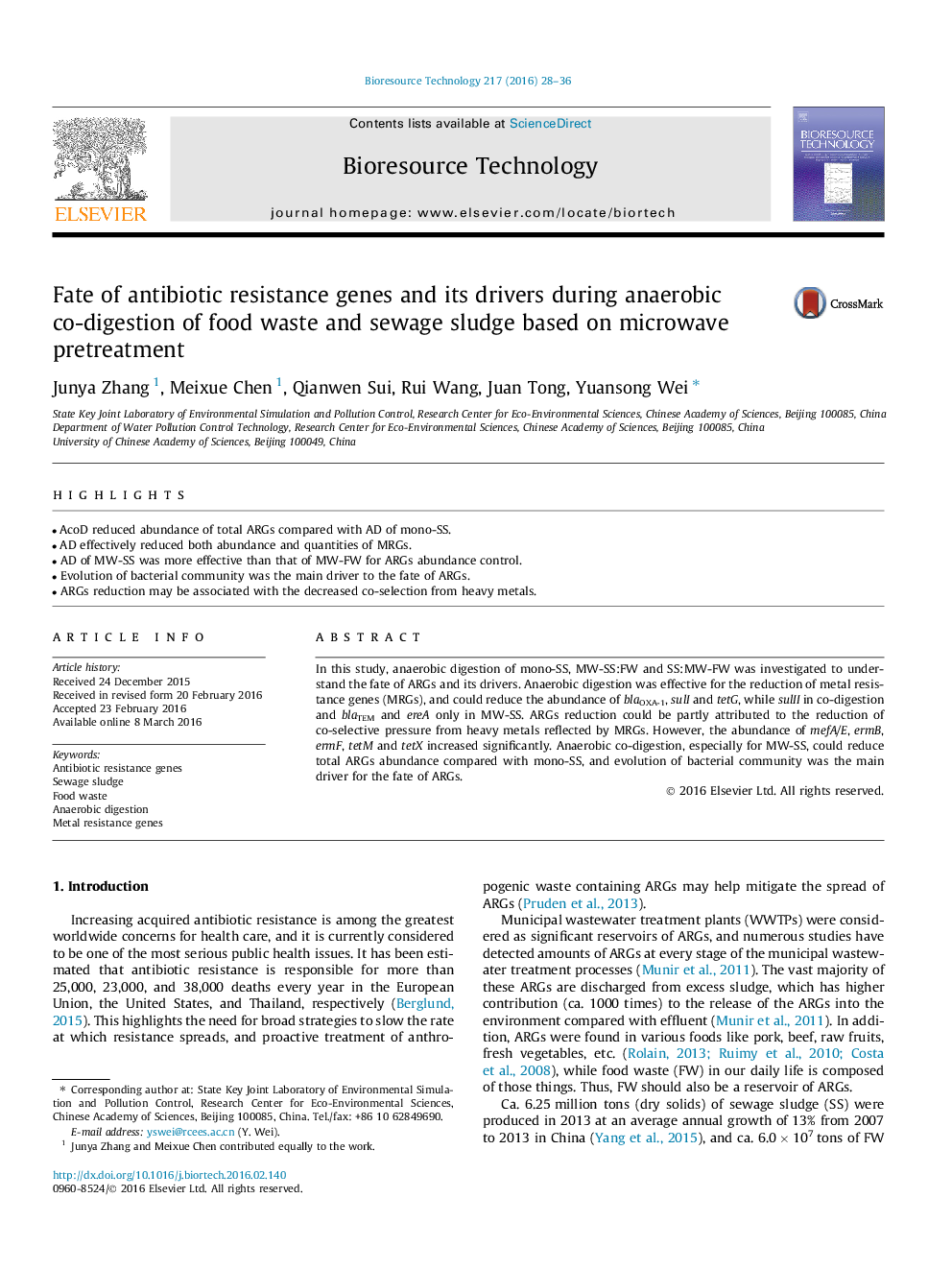| کد مقاله | کد نشریه | سال انتشار | مقاله انگلیسی | نسخه تمام متن |
|---|---|---|---|---|
| 679135 | 1459926 | 2016 | 9 صفحه PDF | دانلود رایگان |
• AcoD reduced abundance of total ARGs compared with AD of mono-SS.
• AD effectively reduced both abundance and quantities of MRGs.
• AD of MW-SS was more effective than that of MW-FW for ARGs abundance control.
• Evolution of bacterial community was the main driver to the fate of ARGs.
• ARGs reduction may be associated with the decreased co-selection from heavy metals.
In this study, anaerobic digestion of mono-SS, MW-SS:FW and SS:MW-FW was investigated to understand the fate of ARGs and its drivers. Anaerobic digestion was effective for the reduction of metal resistance genes (MRGs), and could reduce the abundance of blaOXA-1, sulI and tetG, while sulII in co-digestion and blaTEM and ereA only in MW-SS. ARGs reduction could be partly attributed to the reduction of co-selective pressure from heavy metals reflected by MRGs. However, the abundance of mefA/E, ermB, ermF, tetM and tetX increased significantly. Anaerobic co-digestion, especially for MW-SS, could reduce total ARGs abundance compared with mono-SS, and evolution of bacterial community was the main driver for the fate of ARGs.
Journal: Bioresource Technology - Volume 217, October 2016, Pages 28–36
